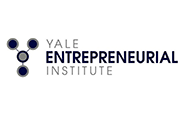Five SEAS Teams Named 2015 YEI FELLOWS

Five SEAS teams have been selected by the Yale Entrepreneurial Institute to participate in the 2015 YEI Fellowship program, a 10-week summer bootcamp that aims to accelerate ventures at Yale by providing $15,000, mentors, access to corporate partners, and the support of a network of like-minded peers and experts. The chosen ventures represent the diversity of interests at SEAS, with forward-thinking, purpose-driven innovations in areas as diverse as biomedical technology, agriculture, and literacy.
The five SEAS teams — Grovio, PatientBank, Revai, Saphlux, and StoryTime — represent nearly half of the 11 teams selected for the 2015 YEI Fellowship from a record 58 applications. Project descriptions for all five teams follow:
Grovio, represented by founders by Sachith Gullapalli YC ’17 and James Stewart, is developing both unmanned aerial systems (also known as UAVs) and a complementary software application that can capture data about crop health and optimize fertilizer inputs. Currently, farmers apply excessive amounts of costly and harmful fertilizer and pesticides because they cannot determine where the smallest application would do the most good. Grovio’s technology makes possible multispectral imaging of crops, state-of-the-art data analysis using machine learning algorithms, and real-time actionable information to optimize farmland decisions.
PatientBank, represented by Paul Fletcher-Hill YC ’15, Feridun Mert Celebi YC ’16, Kevin Grassi MED Resident, and Graham Kaemmer YC ‘16, is a patient-focused digital health record bank that is both highly secure and easily accessible by patients, authorized users, and healthcare professionals. Pitched as a “a personal health record system that actually helps patients receive better care,” the PatientBank platform allows individuals to easily request medical records, store them securely online, and share them with family members and providers. As well, based on input gathered from practicing clinicians, PatientBank drastically improves the efficiency of charting, freeing up time for healthcare workers to interact with patients.
Revai, represented by Jesse Rich SOM ’16, Jen Gaze SOM ’16, associate research scientist and lecturer in mechanical engineering and materials science Joseph Zinter, and professor of surgery and of cellular and molecular physiology, vice chair of surgery, and director of surgical research John Geibel, is producing a medical device that drastically improves the prospects of successful intestinal transplant by pumping fluid through the intestine to keep it healthy during transportation. The technology, which last fall won the 2014 BMEStart competition, has already been shown to successfully extend the time donor organs can be safely stored and transported, and has thus far been used in four human experiments.
Saphlux, represented by Chen Chen SOM ’16 and professor of electrical engineering Jung Han, is a high-efficiency, high-power, low-cost LED chip for use with most LED applications, starting with general lighting. As a commercialization of Han’s research, the Saphlux chip will be ten times cheaper and significantly more energy efficient than current products. It could also enable new LED applications such as a portable LED laser projector. The project recently raised $1 million in investment funding.
StoryTime, represented by Phil Esterman YC ’17 and Jordan Zeldin, is creating a web app that parents without books at home can use to receive nightly children’s stories and story-based early-learning activities by text message. Designed to turn smartphones into a tool to bring families together — even for parents who themselves struggle with reading — the app makes it easier for even the busiest parents to raise readers by consistently reminding and motivating parents to read to their children. StoryTime will scale early literacy for low-income families — including the more than 4 billion parents who, despite not having books or the internet, still have mobile phones.

